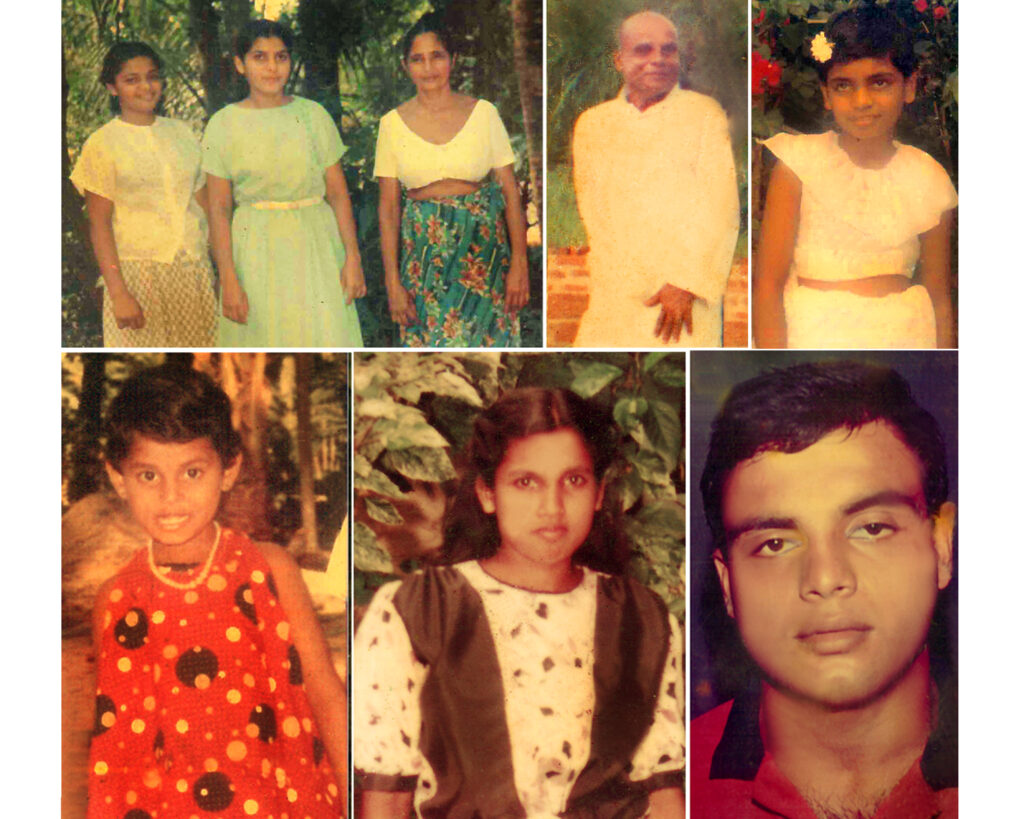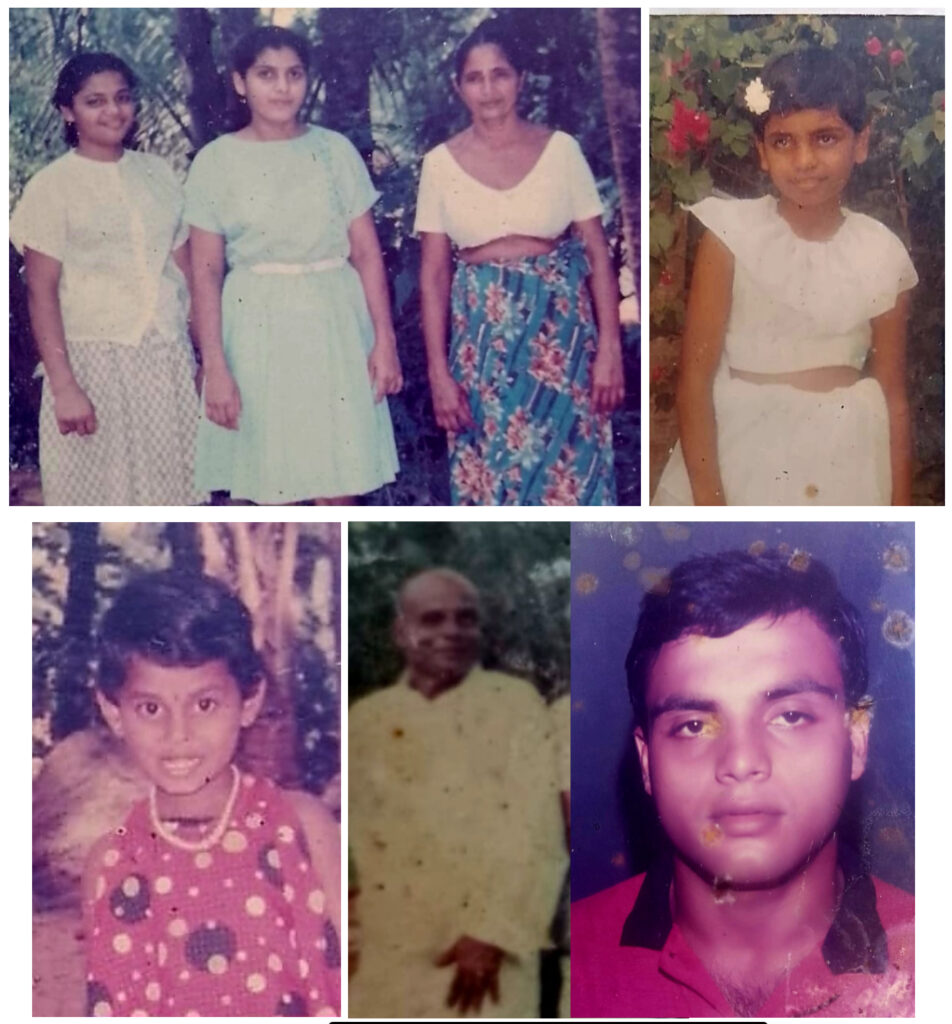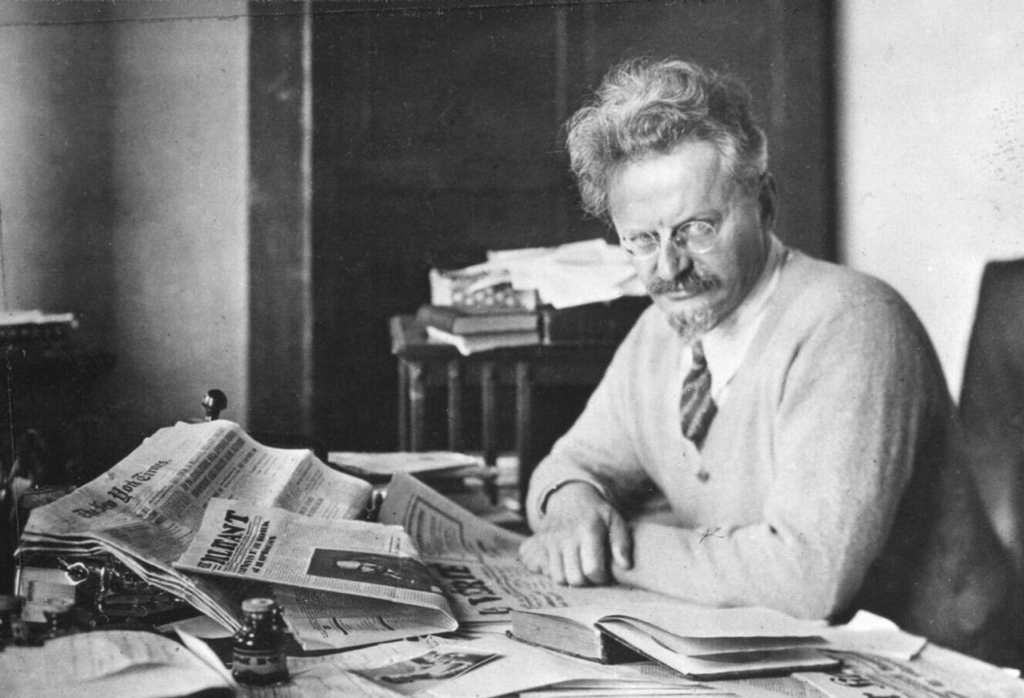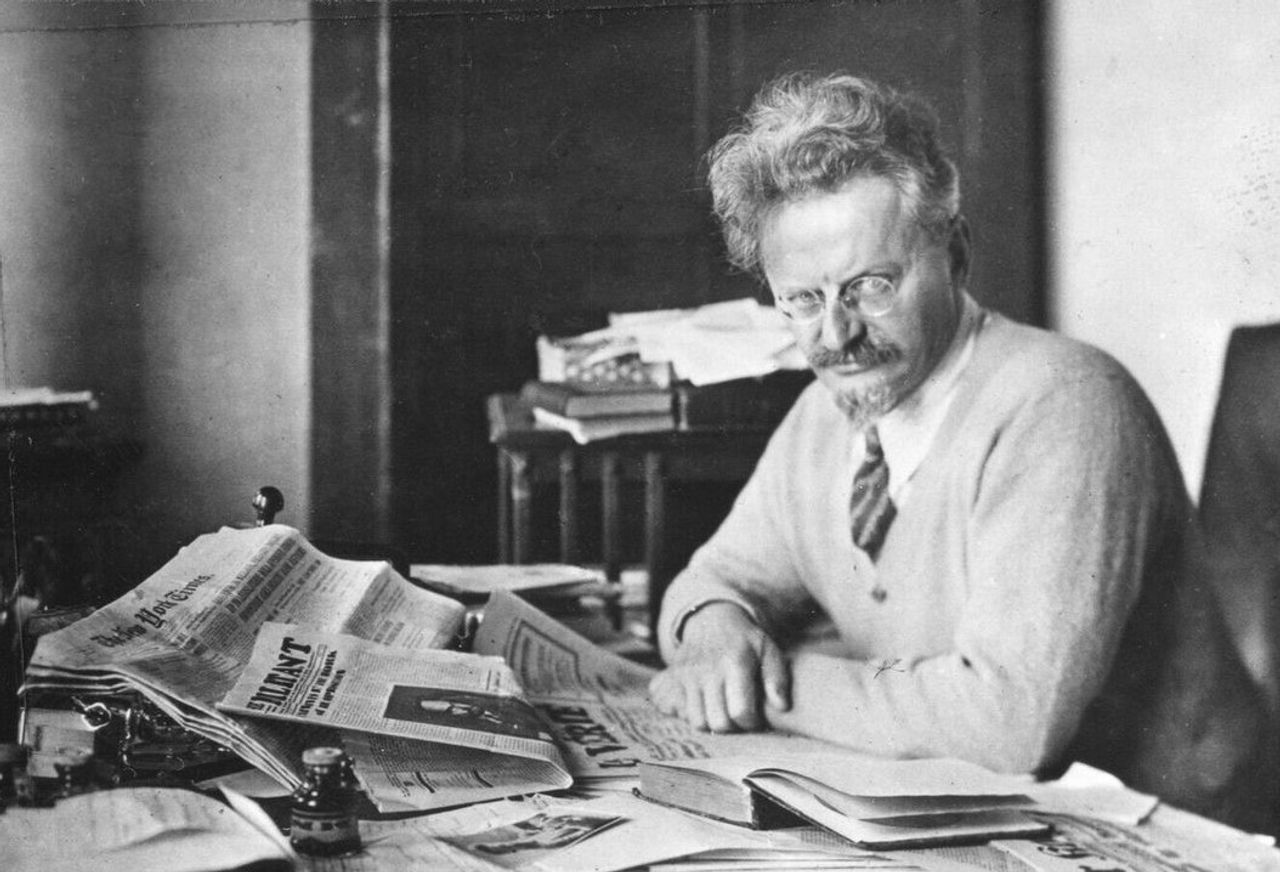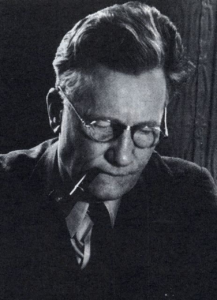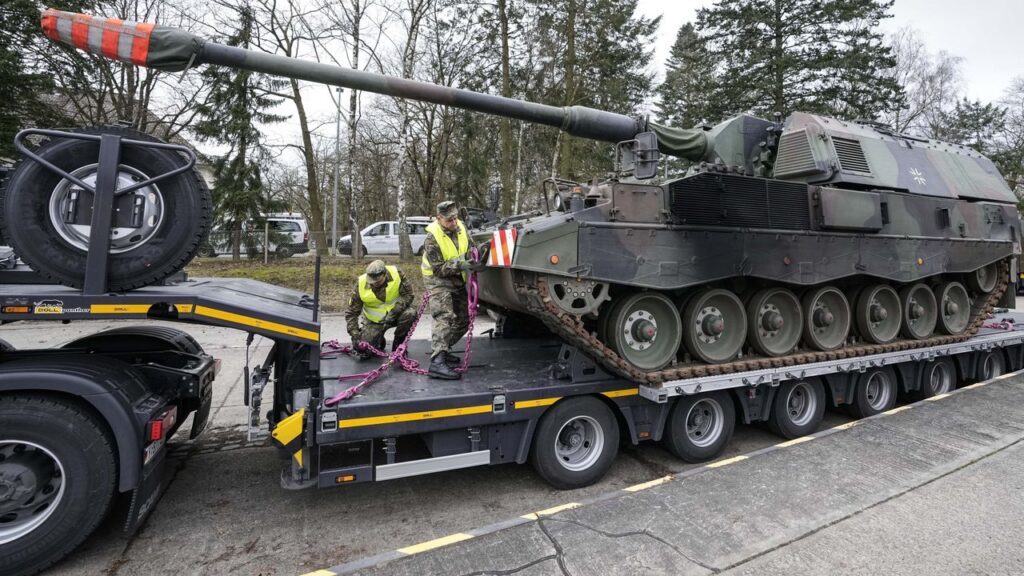බටලන්ද ඝාතකාගාර සහ සමූහ මිනීවළ: ශ්රී ලංකාවේ දුප්පතුන්ට සහ කම්කරු පන්තියට එරෙහි අපරාධවල පන්ති මූලයන්
සංජය ජයසේකර විසිනි.
මාර්තු 12 වැනි දින, ශ්රී ලංකාවේ ජාතික ජන බලවේගය (NPP) ආන්ඩුව, පාර්ලිමේන්තු විවාදයක් සඳහා දින නියම කරමින්, දිගු කලක් වළලනු ලැබූ බටලන්ද කොමිෂන් වාර්තාව පාර්ලිමේන්තුවේ සභාගත කළේය. වාර්තාව ප්රථම වරට සම්පාදනය කර දශක ගණනාවකට පසු ගනු ලැබුන මෙම හදිසි පියවර 1980 ගණන්වල අග භාගයේදී පැහැරගෙන ගොස්, වධහිංසාවට ලක් වූ සහ ඝාතනයට ලක් වූ දහස් ගණන් තරුනයින් හා කම්කරුවන්ට යුක්තිය තහවුරු කිරීම සමග කිසිදු සම්බන්ධයක් නැත. ඒ වෙනුවට, එය, පවතින ආර්ථික අර්බුදයෙන් අවධානය වෙනතකට හැරවීම සහ කුරිරුකම් සඳහා සෘජු වගකීම දරණ ශ්රී ලංකා රාජ්යයේ විශ්වසනීයත්වය ශක්තිමත් කිරීම ඉලක්ක කරගත්, ජනතා විමුක්ති පෙරමුන (ජවිපෙ/JVP) ප්රමුඛ පාලනයේ නරුම උපාමාරුවකි.
බටලන්ද වධකාගාර සහ ශ්රී ලංකාව පුරා විසිරී ඇති සමූහ මිනීවළ 1980 ගනන්වල ආර්ථික බිඳවැටීම නිසා ඇති වූ සමාජ නොසන්සුන්තාවයට ප්රතිචාර වශයෙන් පාලක පන්තිය විසින් මුදා හරින ලද ලේ වැකි භීෂණයේ දරුණු සංකේත වේ. මූලික වශයෙන් දිළිඳු ග්රාමීය පසුබිම්වලින් එන තරුණයන් දහස් ගනනක්, පොලිසිය, හමුදාව සහ ඝාතක කල්ලි විසින් පැහැරගෙන ගොස්, රජයේ කඳවුරුවල රඳවා, වධහිංසා පමුණුවා, දූෂණය කර, මරා දමා, පණපිටින් ටයර් මත පුළුස්සා, හෝ ඔවුන්ගේ සිරුරු ගංගාවලට විසිකර හෝ සලකුණු නොකළ සොහොන්වල වලලා දමන ලදී. හමුදා සහ පොලිස් නිලධාරීන් වින්දිත පිරිමින්ගේ නිවෙස්වලට කඩා වැදී, ඔවුන්ගේ භාර්යාවන්, මව්වරුන් සහ සහෝදරියන් දූෂණය කළහ. මේවා හුදෙක් හුදකලා අපරාධ නොව ධනේශ්වර රාජ්යය, ධනේශ්වර ආර්ථික ප්රතිසංස්කරණ සහ බලය ඕනෑම වියදමක් දරා ආරක්ෂා කිරීමට අධිෂ්ඨාන කරගත් පාලක ප්රභූවක් විසින් දුප්පතුන්ට එරෙහිව දියත් කරන ලද ක්රමානුකූල පන්ති යුද්ධයකි.
IMF කප්පාදුව සහ 1980 ගනන්වල සමාජ අර්බුදය
ජවිපෙ දෙවැනි කැරැල්ල (1987-89) රික්තකයක් තුළ මතුවූවක් නොවේ. එක්සත් ජාතික පක්ෂ (එජාප) ආන්ඩුව විසින් ජාත්යන්තර මූල්ය අරමුදල (ජාමූඅ) විසින් නියම කරන ලද කප්පාදු කෲර ලෙස ක්රියාත්මක කිරීම නිසා ඇති වූ 1980 ගනන්වල ආර්ථික විනාශය – ග්රාමීය දරිද්රතාවය, ණයගැතිභාවය, රෝග, මන්දපෝෂණය, ඉඩම් කොල්ලය, විරැකියාව, පෞද්ගලීකරණය, උද්ධමනය – ග්රාමීය කලකිරුණු තරුණයින් අතර කැරලිකාරී තත්ත්වයන් වර්ධනය කිරීමේ කොන්දේසි නිර්මානය කලේය.
1977 දී ජේ.ආර්. ජයවර්ධනගේ ආන්ඩුව ශ්රී ලංකාවේ සීමිත සුභසාධන-රාජ්ය ආකෘතිය අතහැර විවෘත වෙලඳපොල ලිබරල්කරණය වැලඳ ගත්තේය. ජාමූඅ සහ ලෝක බැංකුව ඉල්ලා සිටියේ “පටි තද කිරීමේ” පියවරයන් ය: මුදල් අවප්රමාණය කිරීම, සමාජ වියදම් සඳහා දැඩි කප්පාදුව සහ අත්යවශ්ය භාණ්ඩ සඳහා සහනාධාර ඉවත් කිරීම. පප්රතිවිපාක ව්යවසනකාරී විය:
- 1988 වන විට සමස්ත අයවැය හිඟය දළ දේශීය නිෂ්පාදිතයෙන් 12% දක්වා ඉහළ ගියේය.
- රජයට වාණිජ ණය ගැනීමට බල කරමින් විදේශ ණය හතර ගුණයකින් වැඩි විය.
- උද්ධමනය 1988 දී 14% දක්වා ළඟා විය.
- නිල සංචිත කඩා වැටුණු අතර, එය 1988 අවසානයේ සති හයක ආනයන දක්වා ද 1989 මැද භාගය වන විට එය සති තුනක් පමණක් දක්වාත් පහත වැටුණි.
- නිල සමීක්ෂණවලට අනුව,1987-88 වන විට විරැකියාව 15.5% දක්වා ඉහළ ගියේය. ඒ අනුව රැකියා විරහිතයන් සංඛ්යාව 940,000 ක් වූ අතර ඔවුන්ගෙන් 75% ක් වයස අවුරුදු 15-29 වයස් කාණ්ඩයේ අය වූහ.
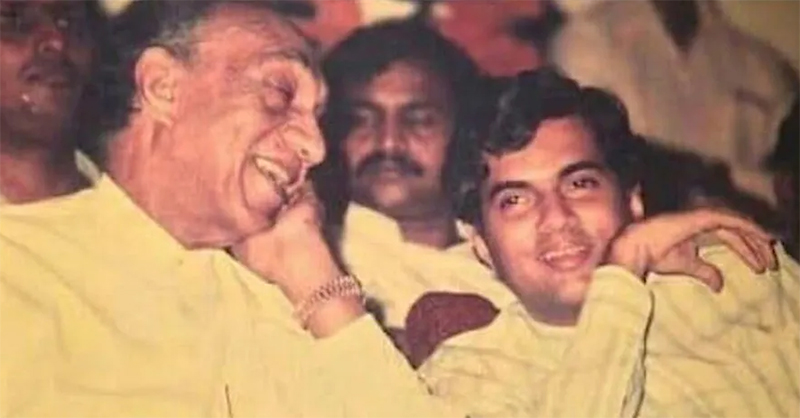
සැලකිය යුතු කරුණක් නම්, උතුරු හා නැගෙනහිර දෙමළ ජනතාවට එරෙහි සිවිල් යුද්ධය සඳහා මිලිටරි වියදම් ද වැඩි කරන ලද අතර, 1983 සිට 1996 දක්වා මුළු සමුච්චිත පිරිවැය අවම වශයෙන්, 1996 මිල ගණන් අනුව, රු. බිලියන 1,135 ක් විය (ඇමරිකානු ඩොලර් බිලියන 20.6 ට සමාන, 1996 දළ දේශීය නිෂ්පාදිතයෙන් 168.5% ක්).
ජයවර්ධනගේ “විවෘත ආර්ථිකය” යටතේ ආර්ථික සමෘද්ධිය පොරොන්දු වූ තරුණ තරුණියන් රැකියා විරහිතයන් වූ අතර ගැඹුරු වන දරිද්රතාවයේ සිරවී සිටියහ. විශේෂයෙන්ම 1980 ජූලි මහා වැඩවර්ජනය කුඩුපට්ටම් කිරීමෙන් පසු – විසම්මුතිය සඳහා වූ සාම්ප්රදායික මංපෙත් තලා දැමීමත් සමඟ – ජවිපෙ, තරුණ විරෝධය බඳවා ගැනීම් සඳහා යහමින් භාවිතා කළේය.
ජනතා විමුක්ති පෙරමුණේ ද්රෝහිත්වය
1964 දී ලංකා සමසමාජ පක්ෂයේ (ලසසප/LSSP) “මහා පාවාදීමේ” අනුප්රාප්තිකයක් ලෙස මාඕවාදයේ, කැස්ත්රෝවාදයේ සහ සුලු ධනේශ්වර රැඩිකල්වාදයේ ප්රතිගාමී මිශ්රණයක් මත පිහිටුවා ගත් ජවිපෙ, සමාජ අර්බුදය පිලිබඳ තරුන අතෘප්තිය, සිංහල ස්වෝත්තමවාදය, ජාතිකවාදය සහ ෆැසිස්ට්වාදී විධික්රම ඔස්සේ ධනවාදී රාජ්යය ආරක්ෂා කිරීම සඳහා යොමු කළේය. ජයවර්ධන සහ රජිව් ගාන්ධි අතර වූ 1987 ජුලි ඉන්දු-ශ්රී ලංකා ගිවිසුම කේඩරයින් බඳවා ගැනීමේ ස්වෝත්තමවාදී ව්යාපාරයක් දියත් කිරීම සදහා ගසාකෑවේ ය.
ජවිපෙ කිසිවිටෙක මාක්ස්වාදී පක්ෂයක් නොවූ අතර, කම්කරු පන්තියට එරෙහිව ග්රාමීය තරුනයන් පිහිටුවමින්, ධනේශ්වර පාලනයට එරෙහිව සමාජවාදී ජාත්යන්තරවාදයේ ඉදිරිදර්ශනය සඳහා කම්කරු පන්තිය ස්වාධීනව බලමුලු ගැන්වීම බැහැර කළේය. කම්කරු පන්තිය කෙරෙහි එහි සතුරුකම, කම්කරුවන්, වමේ දේශපාලන විරුද්ධවාදීන් සහ මතවාදීව එයට විරුද්ධ වූවන් මරා දැමීම තුලින් ප්රකාශ විය.
ජවිපෙ මෙම ෆැසිස්ට් හැසිරීම නිෂ්පාධනයේ ගෝලීයකරණය හා අධිරාජ්යවාදයේ ගෝලීය අර්බුදයේ කොන්දේසි යටතේ ලොව පුරා සුලු ධනේශ්වර ජාතිකවාදී ව්යාපාරවල පරිහානියේ ඉහල ලක්ෂ්යයක් සලකුණු කලේය.
රාජ්ය භීෂණය
JVP සහ එහි මිලිටරි අංශය වන දේශප්රේමී ජනතා ව්යාපාරය (DJV) විසින් එල්ල කරන ලද ෆැසිස්ට් ප්රහාරයන්ට ප්රතිචාර වශයෙන්, එජාපය ග්රාමීය හා නාගරික තරුනයින්ට සහ දුප්පතුන්ට එරෙහිව කිව නොහැකි තරමේ ම්ලේච්ඡත්වයක් මුදා හලේය. ජයවර්ධන සහ ඔහුගේ අනුප්රාප්තිකයා වූ රණසිංහ ප්රේමදාස, ජවිපෙ කාඩර්වරුන්ට පමණක් නොව, කැරැල්ලට කිසිදු සම්බන්ධයක් නොතිබූ දහස් ගණන් කම්කරු පන්තික තරුනයින්ට එරෙහිව රාජ්ය අනුග්රහය ලත් භීෂණකාරී පාලනයක් අධීක්ෂණය කළහ.

වධ කඳවුරු සහ ඝාතන: රට පුරා රහසිගත රැදවුම් මධ්යස්ථාන පිහිටුවන ලද අතර බටලන්ද සහ එළියකන්ද ඉන් වඩාත් කුප්රකට විය. මේවා තුල වචනයෙන් විස්තර කළ නොහැකි තරමේ වධ හිංසා කිරීමේ ක්රම භාවිතා කරන ලදී – පැහැරගෙන ගිය අය එල්ලා, පහර දී, ගුද මාර්ගයට කටු කම්බි ඔබා, බලහත්කාරයෙන් මිරිස් කුඩු මිශ්ර වතුර බැරල් වලට ගිල්ලවූ, ඔවුන්ගෙන් බොහෝ දෙනෙක් පණපිටින් බේරුනේ නැත. තරුණ අය බොහෝ විට ලිංගිකව දූෂණය කිරීමට, හිස ගසා දැමීමට, ඔළුවට සහ කන්වලට ඇණ ගැසීමට, ඇස් උගුලුවා දැමීමට, ටයර් සෑය වල් මත පණපිටින් පුළුස්සා දැමීමට ලක් විය.
ඝාතක කල්ලි සහ ටයර් සෑය: මිලිටරිය, පොලිසිය සහ පැරාමිලිටරි කල්ලි විසින් සැක කටයුතු “කඩාකප්පල්කාරීන්” පැහැරගෙන ගොස් ඝාතනය කර ප්රසිද්ධ ස්ථානවල පුළුස්සා දමන ලදී. සමහර අවස්ථාවලදී ඔවුන්ගේ පවුල්වලට බලා සිටීමට බල කෙරුණි. තම පවුලේ කෙනෙකු ජවිපෙ කාරයෙකු යැයි සැක කළ නිසා පමණක්ම, බොහෝ ගම්මුන් ඝාතනය කෙරුණි, දරුවන්ට පිහියෙන් ඇන මරනු ලැබිණි, ස්ත්රීන් දූෂණය කෙරුණි.
සමූහ මිනීවළ: මළ සිරුරු දහස් ගණනක් නොගැඹුරු, සලකුණු නොකළ සොහොන් වල වළලනු ලැබුනු අතර, ඒවායින් බොහොමයක් තවමත් සොයාගෙන නොමැත (මාතලේ, සූරියකන්ද, විල්පිට එවැනි හඳුනාගත් අතළොස්ස අතර වේ).
සාක්ෂිකරුවන් සහ වින්දිතයන්ගේ පවුල්වල සාමාජිකයන් මහා සංහාරය පිළිබඳ බිහිසුණු සාක්ෂි සපයා ඇත. රාත්රිය පුරා රැඳවියන්ගේ කෑගැසීම් ඇසුණු බව දිවි ගලවා ගත් අය සිහිපත් කරති. තම පුතුන් “අතුරුදහන් වූ” බවට පවසනු ලැබූ මව්වරු ඔවුන්ගේ පිළිස්සුණු සිරුරු දින කිහිපයකට පසු පාර අයිනේ සොයා ගත් හ.
හමුදාවට තම එකම සහෝදරයා සොයා ගැනීමට නොහැකි වූ නිසා,1989 අගෝස්තු අගදී, තම මුළු පවුලම හමුදාව විසින් සමූලඝාතනය කරන ලද, මුල්කිරිගල මැතිවරණ කොට්ඨාසයේ කාන්තාවක් සමඟ TheSocialist.LK කතා කලේය. කම්පනයෙන් සුවය ලැබීමට කාලය ඇයට ඉඩ දී නැති තරම්ය. ඇය මෙසේ පැවසුවාය:
“මගේ සත් හැවිරිදි දියණිය (නිරංජලා), මගේ බාල සහෝදරියන් තිදෙනා (නිල්මිණි, මතඟලතා, සුජිතසීලි), මගේ ඥාති සහෝදරිය වන චන්ද්රලේකා, මගේ මව (සිසිලියානා – 53) සහ වෙද මහතෙක් වූ මගේ පියා (එඩ්වින් – 63) යන සියලු දෙනාම කටුවන හමුදා කඳවුරේ සිංහ රෙජිමේන්තු හමුදා ඛන්ඩය විසින් මහ රෑ ඝාතනය කලා. එම යක්කු අපේ ගෙදරට බෝම්බ ගහලා තිබුනා. පසුවදා, මගේ සැමියා සුන්බුන් යට පිළිස්සෙන මාංශ දුටුවා. මගේ සහෝදරියන් පැහැරගෙන ගොස් දින තුනක් දූෂණය කර මරා දැමූ බව අපට අසන්නට ලැබුණා. පසුව, මගේ සහෝදරයා ද (චූලානන්ද – 21) බෙලිඅත්ත පොලිසිය විසින් මරා දමා පුළුස්සා දැමූවා.”
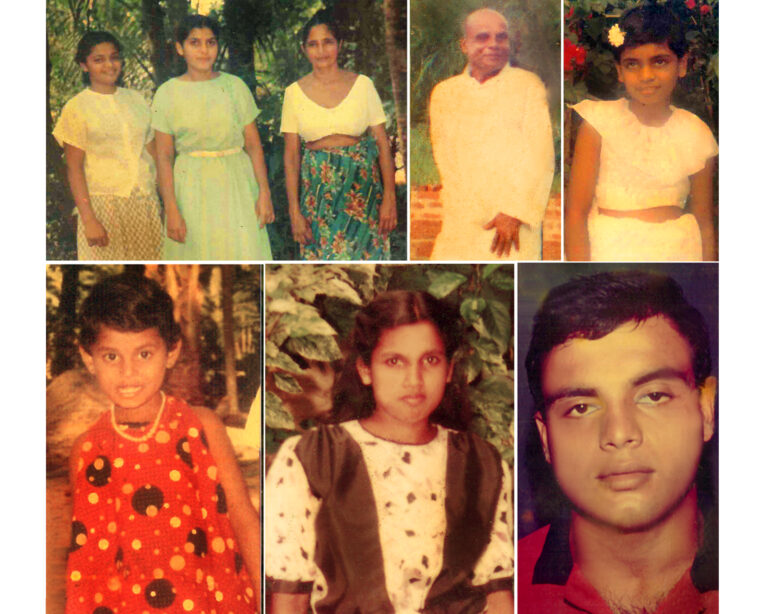
පහළ වමේ සිට – නිරංජලා, චන්ද්රලේකා, චූලානන්ද.
රජයේ මර්දනයෙන් දිවි ගලවා ගත් අයෙක් අප වාර්තාකරුවන්ට පැවසුවේ මෙසේය.
“එතකොට මට වයස අවුරුදු 16යි. කොහොම හරි මගේ ජීවිතය ගැලවුනා. 1989 මැද භාගයේ දවසක රාත්රියේදී ගාල්ලේ වඳුරඹ පොලිසිය මගේ ඥාති සොහොයුරියගේ පෙම්වතා වන ටියුෂන් ගුරුවරයකු වූ උදයකාන්ත පැහැරගෙන ගියේ “අලුගෝසුවා” ලෙස ගමේ අය හඳුන්වන උඩුගම්පොළගේ නියෝගයට අනුවයි. දිනකට පසු තවන් සිරුරු අතර ටයරයක් මත ගිනිගන්නා ඔහුගේ සිරුර මම දැක්කා.”
100,000 කට අධික තරුණ ජනතාවක්, එම කාලය තුළ රජය විසින් සමූල ඝාතනය කරන ලදී. මිලියන ගණනක් අනාථ විය. අද වනතුරුත් එකදු උසස් නිලධාරියකු හෝ දේශපාලකයකු මේ කිසිඳු අපරාධයකට වගවීමට ලක් කර නැත.
අපරාධ වසන් කිරීම සදහා ජනතා විමුක්ති පෙරමුණේ හවුල්කාරිත්වය
මෙම මර්දනයේ මූලික ඉලක්කය සහ ආසන්නතම හේතුව වී තිබියදීත්, ඝාතනයට ලක්වූවන්ගේ පවුල්වලට යුක්තිය ඉටු කිරීමට ජනතා විමුක්ති පෙරමුණට කිසිදු අදහසක් නැත. කලින් එය ධනේශ්වර සභාග ආන්ඩු සමග පෙල ගැසී සිටියදී මෙම අපරාධ හෙලිදරව් කිරීමට කිසිවක් කලේ නැත, දැන් ක්රියා කරන්නේද නැත. එහි පූර්වගාමීන් මෙන්ම, අවශ්යතාවය පැනනගින සෑම විටම, අතීත ම්ලේච්ඡ ක්රියා ආන්ඩුව විසින් භාවිතයට යොදාගන්නේ දේශපාලන විරුද්ධත්වය මැඩ පැවැත්වීමට පමණි.
1990 ගනන්වල සිටම, වරක් එහි තරුණ කේඩරයන් සමූලඝාතනය කළ ධනේශ්වර බලවේග සමග යලි යලිත් පෙලගැසී ඇති ජවිපෙ, දක්ෂිනාංශික ධනේශ්වර පක්ෂයක් බවට පරිවර්තනය වී ඇත.
- 2004 දී ජවිපෙ, චන්ද්රිකා කුමාරතුංග සමග සභාග ආන්ඩුවකට සම්බන්ධ වූයේ, රාජ්ය ප්රචණ්ඩත්වය අඛන්ඩව පවත්වාගෙන යාමටත්, පාලක පන්තියේ අඳුරු වාර්තාව යටපත් කිරීමටත් දේශපාලන ආවරණය සපයමිනි.
- එය පසුව, 2009 දී, දෙමල ජනයාට එරෙහි ශ්රී ලංකා ආන්ඩුවේ වර්ගවාදී යුද්ධයේ අවසන් අදියරේදී දෙමළ සිවිල් වැසියන් සමූල ඝාතනය සිදු කල මහින්ද රාජපක්ෂගේ පාලනයට සහාය දැක්වීය.
- 2010 සහ 2015 දී ජවිපෙ රනිල් වික්රමසිංහ සහ ජෙනරාල් සරත් ෆොන්සේකා සමග එක වේදිකාවක නැගී සිටියේ පීඩකයාගේ හස්තය සවිමත් කිරීමටයි. වික්රමසිංහ ප්රේමදාස ආණ්ඩුවේ කැබිනට් අමාත්යවරයකු වූ අතර බටලන්ද කොමිෂන් වාර්තාවට අනුව දකුණේ වධහිංසා අධීක්ෂණය කළ බව විශ්වාස කෙරෙන අතර, ෆොන්සේකා හිටපු හමුදා අණදෙන නිලධාරියෙක් ලෙස උතුරේ සහ දකුණේ ඝාතන අධීක්ෂණය කළේය.
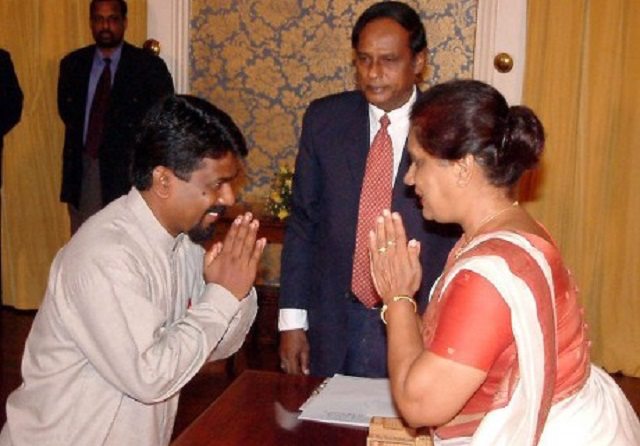
දැන්, NPP ආන්ඩුවේ ප්රමුඛ බලවේගය ලෙස, JVP යලිත් වරක් දේශපාලන රැවටිල්ලක යෙදී සිටී. බටලන්ද වාර්තාව පාර්ලිමේන්තුවට ඉදිරිපත් කිරීම මගින් එය උත්සාහ කරන්නේ ජාමූඅ නව වටයේ කප්පාදු පියවරයන්ට එරෙහිව වැඩෙන කම්කරු පන්ති අරගල මැඩලීමට ස්ථානගත වෙමින් ප්රජාතන්ත්රවාදයේ ආරක්ෂකයෙකු ලෙස පෙනී සිටීමට ය.
අපරාධවල පන්ති ස්වභාවය සහ යුක්තිය සඳහා මාවත
බටලන්දේදී සහ ශ්රී ලංකාව පුරා සිදු කරන ලද සාහසික ක්රියා, කම්කරු පන්තියේ පුළුල් ප්රතිරෝධයේ තර්ජනයට එරෙහිව ආරක්ෂා වීම සඳහා ධනේශ්වර රාජ්යයක් ගණන් බලා සිදු කළ ක්රියාවන් විය. UNP සිට ශ්රී ලංකා නිදහස් පක්ෂය (SLFP) සිට JVP දක්වා පාලක පන්තියේ සෑම පක්ෂයක්ම කම්කරු පන්තිය මර්දනය කිරීමට සහභාගී වී ඇත. සහනාධාර කපා දැමීම සහ කප්පාදු පිළිවෙත් මාලාවක් ක්රියාවට දැමීමෙන් පසු සිදු වූ 1971 තරුණ නැගිටීමේදී, SLFP-LSSP-CP (CP-ශ්රී ලංකාවේ කොමියුනිස්ට් පක්ෂය) සභාග ආන්ඩුව ධනේශ්වර පාලනය ආරක්ෂා කිරීම සඳහා ග්රාමීය තරුනයින් 20,000 ක් පමණ ඝාතනය කරන ලදී.
සැබෑ යුක්තිය, පාර්ලිමේන්තු වාද විවාදවලින්, ව්යාජ කොමිෂන් සභාවලින් හෝ ධනේශ්වර “යුක්තිය පසිඳලීමේ ක්රියාදාමයෙන්” උදා නොවනු ඇත. රාජ්ය ත්රස්තවාදයට ගොදුරු වූවන් වෙත යුක්තිය ඉටු කිරීම සඳහා පහත සඳහන් සියලු ඉල්ලීම් ඉටු කිරීම අවශ්ය වේ:
- රජයේ ආරක්ෂක අංශ, පොලිසිය සහ රාජ්ය අනුග්රහය ලබන පැරා මිලිටරි ඝාතක කණ්ඩායම් විසින් පැහැරගෙන ගොස්, බලහත්කාරයෙන් අතුරුදන් කරන ලද සහ/හෝ වධ හිංසාවලට ලක් වූ සහ/හෝ ඝාතනය කළ සියලු දෙනාගේ නම්/අනන්යතා හෙළිදරව් කිරීම,
- එම කාලය තුළ පොලිස් ස්ථාන, හමුදා කඳවුරු සහ රැඳවුම් මධ්යස්ථාන පිහිටි ස්ථාන සම්බන්ධයෙන් සියලුම පොලිස් හා හමුදා වාර්තා හෙළිදරව් කිරීම,
- කැරලි සමයේදී දිවයින පුරා පිහිටි හමුදා කඳවුරු භාරව සිටි අණදෙන නිලධාරීන්ගේ නම්, නිලයන් සහ රෙජිමේන්තු නම් සහ, ස්ථාන භාර පොලිස් නිලධාරීන්ගේ නම් හෙළිදරව් කිරීම,
- දිවයිනේ සෑම ප්රදේශයකම සෑම සමූහ මිනීවළක්ම සොයා ගැනීම, දේහ ගොඩ ගැනීම, වින්දිතයන් හඳුනා ගැනීම සඳහා විද්යාත්මක විශ්ලේෂණ පැවැත්වීම සහ ඔවුන්ගේ අනන්යතාවය ඥාතීන්ට හෙළිදරවු කිරීම,
- විපතට පත් වූවන්ගේ ඥාතීන්ට තම ආදරණීයයන්ට සිදු වූ දේ හෙළි කිරීම සහ ඔවුන්ට සම්පූර්ණ වන්දි ලබා දීම,
- දේශපාලන ආවරණය සැපයූ අයවලුන් ඇතුළු අපරාධකරුවන් හඳුනාගෙන නඩු පැවරීම සහ දඬුවම් කිරීම.
මෙම ඉල්ලීම් සාක්ෂාත් කර ගැනීම සඳහා කම්කරු පන්තිය අතට සෘජු දේශපාලන බලය අවශ්ය වේ. පාලක පන්තිය – NPP ඇතුලු කුමන දේශපාලන පක්ෂයත් බලයේ සිටියද – කිසිවිටෙකත් ස්වකීය නියෝජිතයින්ට එරෙහිව කැමැත්තෙන් නඩු පවරන්නේ නැත. සත්යය සහ යුක්තිය සඳහා වන අරගලය ධනේශ්වර රාජ්යය පෙරලා දමා එහි මිලිටරි-පොලිස් යන්ත්රණය බිඳ දැමීම සඳහා ධනවාදයට හා මූල්ය ප්රාග්ධනයේ ආධිපත්යයට එරෙහි පුලුල් අරගලය සමග සම්බන්ධ කළ යුතුය.
සමාජවාදී ඉදිරිදර්ශනය
1988-90 පාඩම් පැහැදිලි ය: අධිරාජ්යවාදී පද්ධතිය නොනැසී පවතින්නේ කම්කරු පන්ති අරගල නිර්දය ලෙස මර්දනය කිරීම තුලින් ය. දකුණේ සිංහල තරුණයන් මත සිදු කරන ලද සංහාරය, උතුරේ සහ නැඟෙනහිර දෙමළ ජන සංහාරය, පලස්තීනුවන් වාර්ගිකව ශුද්ධ කිරීම, COVID-19 වසංගතයට මිලියන ගණනක ජීවිත අහිමි කිරීම පාලක පන්තිය විසින් අවශ්ය පිරිවැය ලෙස සලකයි.
ශ්රී ලංකාව යලිත් වරක් ආර්ථික බිඳවැටීමකට මුහුන දී සිටින අතර, කප්පාදු සඳහා ජාමූඅ නවතම ඉල්ලීම් නව සමාජ පිපිරීම් අවුස්සනු ඇත. NPP ආන්ඩුව, එහි පූර්වගාමීන් අනුගමනය කරමින්, මහජන විරෝධයට රාජ්ය මර්දනයෙන් ප්රතිචාර දක්වනු ඇත. අතීත ම්ලේච්ඡ ක්රියා නැවත සිදුවීම වැලැක්විය හැකි එකම මාර්ගය වන්නේ, කම්කරු පන්තිය මූල්ය ප්රාග්ධනයේ සහ ඔවුන්ගේ දේශීය ගෝලබාලයන්ගේ ආධිපත්යයට එරෙහිව, පාලක පන්තියේ සියලු කන්ඩායම්වලින් බිඳී ස්වාධීන දේශපාලන ක්රියාමාර්ගයක් ගනිමින්, ජාත්යන්තර කම්කරු පන්තියේ සහයෝගය ඇතිව සමාජවාදී විප්ලවය සඳහා සටන් කිරීමයි. මේ සදහා විප්ලවවාදී නායකත්වයේ අවශ්ය වෙයි – මෙය දෙවන සහ වැදගත්ම පාඩමයි.
ශ්රී ලංකාවේ සමාජවාදී සමානතා පක්ෂයේ (සසප) විප්ලවවාදී වාම කන්ඩායම වන ශ්රී ලංකාවේ සහ දකුණු ආසියාවේ සමාජවාදී නායකත්වය (SLLA), කම්කරුවන්ගෙන් ඉල්ලා සිටින්නේ, උතුරේ සහ දකුණේ පීඩිත තරුණයින් තමන් පිටුපස පෙළගස්වමින්, JVP ප්රමුඛ ජාතික ජන බලවේගයේ ව්යාජ පොරොන්දු ප්රතික්ෂේප කරන ලෙසත්, ධනේශ්වර ප්රභූ පැලැන්තියේ පාලනය අවසන් කර, ශ්රී ලංකා සහ ඊලම් කම්කරු රජයක් ස්ථාපිත කරන ජාත්යන්තර සමාජවාදී වැඩසටහනට අනුකූලව කාර්මික ක්රියාමාර්ග සදහා වන කමිටුවල ස්වාධීනව සංවිධානය වන ලෙසත්ය. විකල්ප ධනේශ්වර රාජ්යයක් යෝජනා කරමින් තමන්ට එරෙහිව දේශපාලන උගුල් අටවන අතරම මහජන අවශ්යතා ආරක්ෂා කරන්නන් ලෙස පෙනී සිටින ව්යාජ වම සහ වෘත්තීය සමිති කම්කරුවෝ විශ්වාස නොකළ යුතුය. මහජන අවශ්යතා ඉටුකෙරෙන ධනේශ්වර රාජ්යයක් යනු මිත්යාවකි. අතීතයේ සිදු කළ අපරාධවලට සැබෑ පිළියම් යෙදිය හැක්කේද, පීඩනයෙන් හා සූරාකෑමෙන් තොර අනාගතයක් සුරක්ෂිත කළ හැක්කේද සමාජවාදී විප්ලවයකින් පමණි.
යොමු:
- The US war and occupation of Iraq—the murder of a society, Bill Van Auken, 22 May 2007, <https://www.wsws.org/en/articles/2007/05/iraq-m22.html>
- මර්දනය සහ ශ්රී ලංකාවේ රාජ්යය, විප්ලවවාදී කොමියුනිස්ට් සංගමයේ දේශපාලන කමිටුව, 1990 දෙසැම්බර්
- ශ්රී ලංකා ට්රොට්ස්කිවාදීන් ග්රාමීය තරුණයන් ආරක්ෂා කරයි, විප්ලවවාදී කොමියුනිස්ට් සංගමය (ශ්රී ලංකාව), 1990 නොවැම්බර් 23.
- ශ්රී ලංකාවේ තත්ත්වය සහ විප්ලවවාදී කොමියුනිස්ට් සංගමයේ දේශපාලන කර්තව්ය, හතරවන ජාත්යන්තරයේ ජාත්යන්තර කමිටුවේ ප්රකාශය, ඩේවිඩ් නෝර්ත්, කීර්ති බාලසූරිය, 1987 නොවැම්බර් 19.

